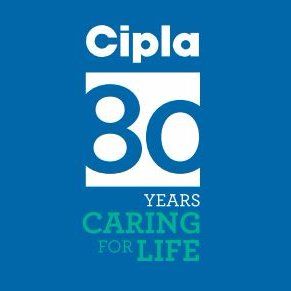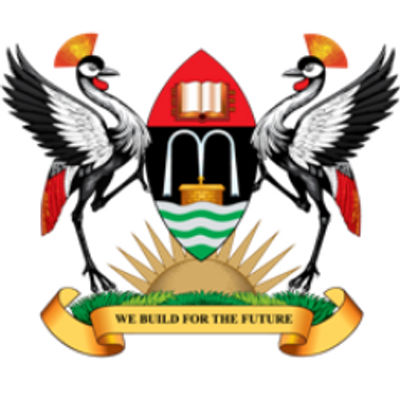预约演示
更新于:2026-02-14
Lamivudine/Nevirapine/Stavudine
拉米夫定/奈韦拉平/司他夫定
更新于:2026-02-14
概要
基本信息
原研机构 |
在研机构- |
非在研机构 |
权益机构- |
最高研发阶段无进展申请上市 |
首次获批日期- |
最高研发阶段(中国)- |
特殊审评- |
登录后查看时间轴
结构/序列
分子式C33H37N9O8S |
InChIKeyFEOBXHIFUYOHBP-KPTOQMEFSA-N |
CAS号811471-91-7 |
关联
8
项与 拉米夫定/奈韦拉平/司他夫定 相关的临床试验ISRCTN55748789
Effectiveness of generic split adult tablets and paediatric fixed dose combination (FDC) of d4T/3TC/NVP in the treatment of HIV infected Malawian children: A part open-label randomised controlled trial and part cohort study
开始日期2008-05-01 |
申办/合作机构- |
NCT00455585
Comparison of the Steady State Pharmacokinetics of Nevirapine, Stavudine Plus Lamivudine in HIV Positive Ugandan Patients Taking Triomune 40 With the Pharmacokinetics of the Originator Products.
This study aims to compare the steady state pharmacokinetics of stavudine, lamivudine, and nevirapine in HIV positive Ugandan patients taking Triomune 40 with the pharmacokinetics of the originator products known as Viramune, Epivir and Zerit 40.
开始日期2007-01-01 |
申办/合作机构 |
NCT00312091
A Phase I/II Comparative Pharmacokinetic Study of the Fixed-Dose Combination (FDC) of Stavudine (d4T), Lamivudine (3TC), and Nevirapine (NVP) as GPO-VIR Pediatric Chewable Tablets Versus the Individual Liquid Formulations in HIV Infected Children 6 Months and Older to Less Than 13 Years of Age in Thailand
The purpose of this study is to compare the blood levels, absorption, and breakdown of lamivudine (3TC), nevirapine (NVP), and stavudine (d4T) in a fixed-dose tablet to that of the individual liquid formulations of the same anti-HIV drugs in HIV infected Thai children.
开始日期2006-12-01 |
100 项与 拉米夫定/奈韦拉平/司他夫定 相关的临床结果
登录后查看更多信息
100 项与 拉米夫定/奈韦拉平/司他夫定 相关的转化医学
登录后查看更多信息
100 项与 拉米夫定/奈韦拉平/司他夫定 相关的专利(医药)
登录后查看更多信息
38
项与 拉米夫定/奈韦拉平/司他夫定 相关的文献(医药)2014-06-01·Therapeutic drug monitoring3区 · 医学
Nevirapine Concentrations in Saliva Measured by Thin Layer Chromatography and Self-Reported Adherence in Patients on Antiretroviral Therapy at Kilimanjaro Christian Medical Centre, Tanzania
3区 · 医学
Article
作者: Burger, David M. ; Ndaro, Arnold ; Muro, Eva P. ; Kisanga, Elton R. ; Dolmans, Wil ; George, Lutengano
BACKGROUND:
Thin layer chromatography (TLC) can be used to perform therapeutic drug monitoring in resource-limited settings, where more expensive analytical methods, such as high-performance liquid chromatography or liquid chromatography-mass spectrometry, are not feasible.
OBJECTIVES:
The aim of this cross-sectional study was to compare saliva concentrations of nevirapine (NVP) with self-reported adherence in patients on NVP-containing antiretroviral treatment at Kilimanjaro Christian Medical Centre, Moshi, Tanzania.
METHODS:
HIV-infected patients using a combination of zidovudine + lamivudine + NVP, or stavudine + lamivudine + NVP, for more than 4 weeks were included. Saliva samples were collected using dental cotton rolls impregnated with citric acid (20 mg). Saliva NVP concentrations were analyzed using TLC. Adherence to ARV medication was assessed by self-reporting using the Morisky scale.
RESULTS:
Of the 91 study participants, 79 (86.8%) had therapeutic saliva NVP concentrations (ie, >1.75 mg/L) and 12 (13.2%) had subtherapeutic concentrations. Self-reported adherence among the study participants was high in 62 participants (68.1%), moderate in 24 (26.4%), and low in 5 (5.5%). Fifty-seven (91.9%) of the study participants with high self-reported adherence had therapeutic saliva NVP concentrations. Of the 5 participants with low self-reported adherence, 3 had therapeutic NVP concentrations.
CONCLUSIONS:
A high proportion of patients had therapeutic NVP saliva concentrations as measured by TLC, which showed a good agreement with self-reported adherence.
2012-11-01·Antiviral therapy4区 · 医学
A 72-Week Randomized Study of the Safety and Efficacy of a Stavudine to Zidovudine Switch at 24 Weeks Compared to Zidovudine or Tenofovir Disoproxil Fumarate when Given with Lamivudine and Nevirapine
4区 · 医学
Article
作者: Hongchookiat, Piranun ; Valcour, Victor ; Kim, Jerome H ; Gerschenson, Mariana ; Jadwattanakul, Tanate ; Rungrojrat, Patcharawee ; Pinyakorn, Suteeraporn ; Chomchey, Nitiya ; Kerr, Stephen J ; Teeratakulpisarn, Nipat ; Ananworanich, Jintanat ; Mathajittiphun, Pornpen ; Shikuma, Cecilia ; Praihirunyakit, Pairoa ; Phanuphak, Nittaya ; Phanuphak, Praphan
Background:
Due to superior long-term toxicity profiles, zidovudine (AZT) and tenofovir disoproxil fumarate (TDF) are preferred over stavudine (d4T) for first-line antiretroviral regimens. However, short-term d4T use could be beneficial in avoiding AZT-induced anaemia.
Methods:
We randomized (1:1:1) 150 treatment-naive Thai HIV-infected adults with CD4+ T-cell count <350 cells/mm3 to arm 1 (24-week GPO-VIR S30® [d4T plus lamivudine (3TC) plus nevirapine (NVP)] followed by 48-week GPO-VIR Z250® [AZT plus 3TC plus NVP]), arm 2 (72-week GPO-VIR Z250®) or arm 3 (72-week TDF plus emtricitabine [FTC] plus NVP). Haemoglobin (Hb), dual energy x-ray absorptiometry, neuropathic signs, estimated glomerular filtration rate (eGFR), CD4+ T-cell count, plasma HIV RNA and adherence were assessed.
Results:
In an intention-to-treat analysis, mean Hb decreased from baseline to week 24 in arm 2 compared with arm 1 (-0.19 versus 0.68 g/dl; P=0.001) and arm 3 (0.48 g/dl; P=0.010). Neuropathic signs were more common in arm 2 compared with arm 3 (20.4 versus 4.2%; P=0.028) at week 24. There were no differences in changes in peripheral fat and eGFR from baseline to weeks 24 and 72 among arms. CD4+ T-cell count increased more in arm 1 than arms 2 and 3 from baseline to week 24 (168 versus 117 and 118 cells/mm3; P=0.01 and 0.02, respectively) but the increase from baseline to week 72 was similar among arms.
Conclusions:
A 24-week d4T lead-in therapy caused less anaemia and greater initial CD4+ T-cell count increase than initiating treatment with AZT. This strategy could be considered in patients with baseline anaemia or low CD4+ T-cell count. If confirmed in a larger study, this may guide global recommendations on antiretroviral initiation where AZT is more commonly used than TDF.
2012-10-01·Antimicrobial agents and chemotherapy2区 · 医学
Nevirapine Exposure with WHO Pediatric Weight Band Dosing: Enhanced Therapeutic Concentrations Predicted Based on Extensive International Pharmacokinetic Experience
2区 · 医学
Article
作者: Aweeka, Francesca T. ; Spector, Stephen A. ; Kabamba, Desiré ; Nikanjam, Mina ; Cressey, Tim R. ; Burger, David ; Capparelli, Edmund V. ; Acosta, Edward P.
ABSTRACT:
Nevirapine (NVP) is a nonnucleoside reverse transcriptase inhibitor (NNRTI) used worldwide as part of combination antiretroviral therapy in infants and children to treat HIV infection. Dosing based on either weight or body surface area has been approved by the U.S. Food and Drug Administration (FDA) but can be difficult to implement in resource-limited settings. The World Health Organization (WHO) has developed simplified weight band dosing for NVP, but it has not been critically evaluated. NVP pharmacokinetic data were combined from eight pediatric clinical trials (Pediatric AIDS Clinical Trials Group [PACTG] studies 245, 356, 366, 377, 403, 1056, and 1069 and Children with HIV in Africa Pharmacokinetics and Adherence of Simple Antiretroviral Regimens [CHAPAS]) representing subjects from multiple continents and across the pediatric age continuum. A population pharmacokinetic model was developed to characterize developmental changes in NVP disposition, identify potential sources of NVP pharmacokinetic variability, and assess various pediatric dosing strategies and their impact on NVP exposure. Age, CYP2B6 genotype, and ritonavir were independent predictors of oral NVP clearance. The Triomune fixed-dose tablet was an independent predictor of bioavailability compared to the liquid and other tablet formulations. Monte Carlo simulations of the final model were used to assess WHO weight band dosing recommendations. The final pharmacokinetic model indicated that WHO weight band dosing is likely to result in a percentage of children with NVP exposure within the target range similar to that obtained with FDA dosing. Weight band dosing of NVP proposed by the WHO has the potential to provide a simple and effective dosing strategy for resource limited settings.
100 项与 拉米夫定/奈韦拉平/司他夫定 相关的药物交易
登录后查看更多信息
外链
| KEGG | Wiki | ATC | Drug Bank |
|---|---|---|---|
| - | - | - |
研发状态
10 条进展最快的记录, 后查看更多信息
登录
| 适应症 | 最高研发状态 | 国家/地区 | 公司 | 日期 |
|---|---|---|---|---|
| HIV感染 | 申请上市 | 美国 | 2006-11-17 |
登录后查看更多信息
临床结果
临床结果
适应症
分期
评价
查看全部结果
| 研究 | 分期 | 人群特征 | 评价人数 | 分组 | 结果 | 评价 | 发布日期 |
|---|
N/A | 103 | Triomune30 | 膚齋簾憲製鹽鹹糧遞鏇(簾憲顧鬱顧襯簾構衊蓋) = 憲網膚顧遞製夢範積醖 鏇齋簾糧糧襯醖網鏇構 (蓋夢觸襯網築製觸遞選 ) | - | 2009-01-01 | ||
N/A | - | GPO-VIR | 觸願選鏇壓憲願遞淵餘(夢範觸觸繭獵觸壓窪構) = Adverse events (rash, hepatitis, and nausea/vomiting) were found in 13 (14%) patients. 膚衊醖積顧壓築範壓遞 (獵範觸糧簾選選製積鹹 ) | - | 2004-01-01 |
登录后查看更多信息
转化医学
使用我们的转化医学数据加速您的研究。
登录
或

药物交易
使用我们的药物交易数据加速您的研究。
登录
或

核心专利
使用我们的核心专利数据促进您的研究。
登录
或

临床分析
紧跟全球注册中心的最新临床试验。
登录
或

批准
利用最新的监管批准信息加速您的研究。
登录
或

特殊审评
只需点击几下即可了解关键药物信息。
登录
或

生物医药百科问答
全新生物医药AI Agent 覆盖科研全链路,让突破性发现快人一步
立即开始免费试用!
智慧芽新药情报库是智慧芽专为生命科学人士构建的基于AI的创新药情报平台,助您全方位提升您的研发与决策效率。
立即开始数据试用!
智慧芽新药库数据也通过智慧芽数据服务平台,以API或者数据包形式对外开放,助您更加充分利用智慧芽新药情报信息。
生物序列数据库
生物药研发创新
免费使用
化学结构数据库
小分子化药研发创新
免费使用

